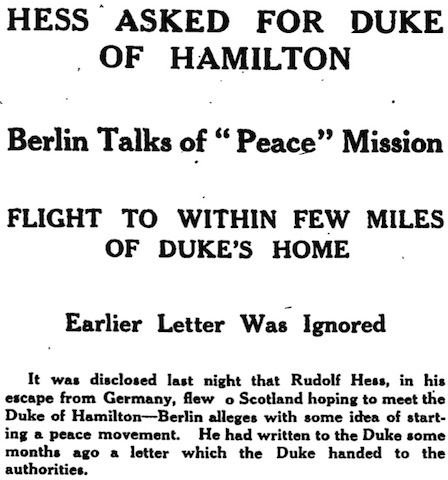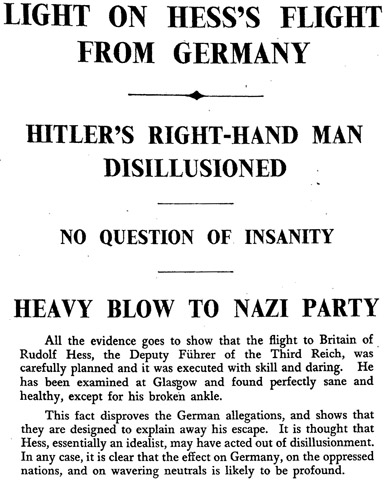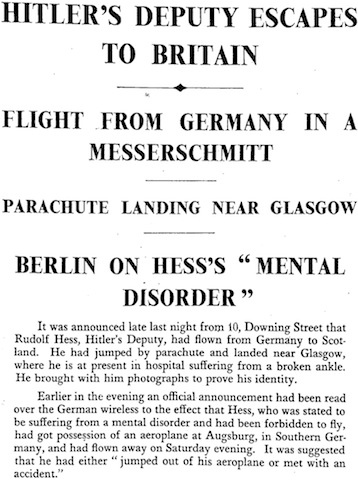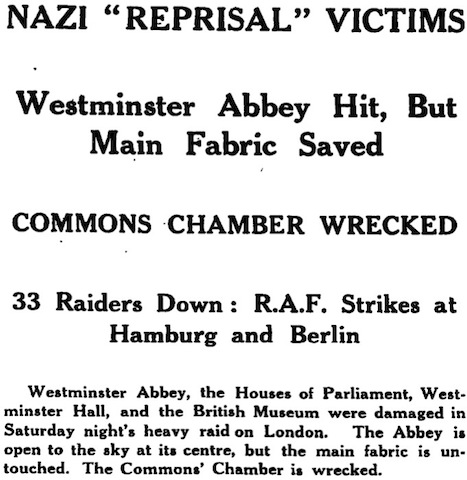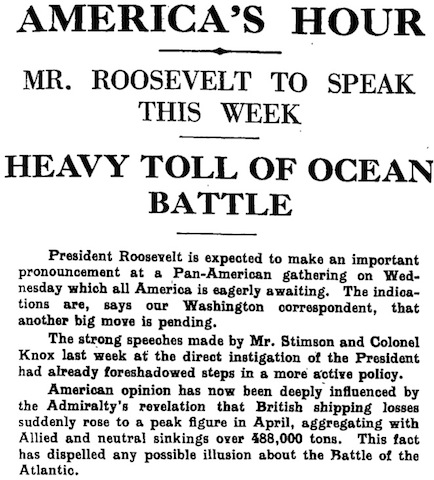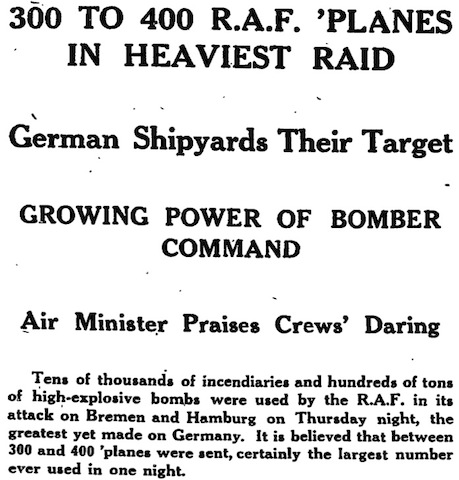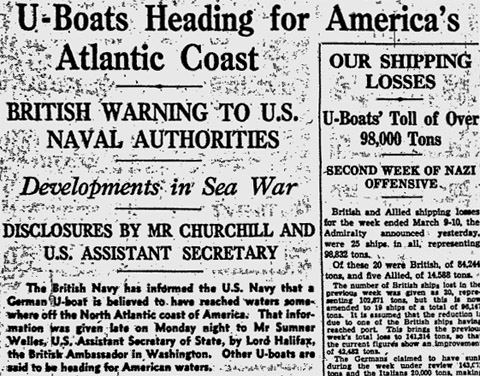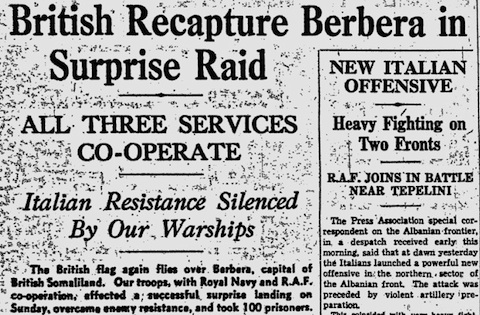Friday, 16 May 1941
There have been alarming developments in the Near East, reports the Manchester Guardian today (5). Syria, a Vichy French possession, is being used as a staging post for German aeroplanes on their way to Iraq, where an anti-British coup recently took place. About thirty have already crossed Syria, it is authoritatively stated in Cairo. Their […]



